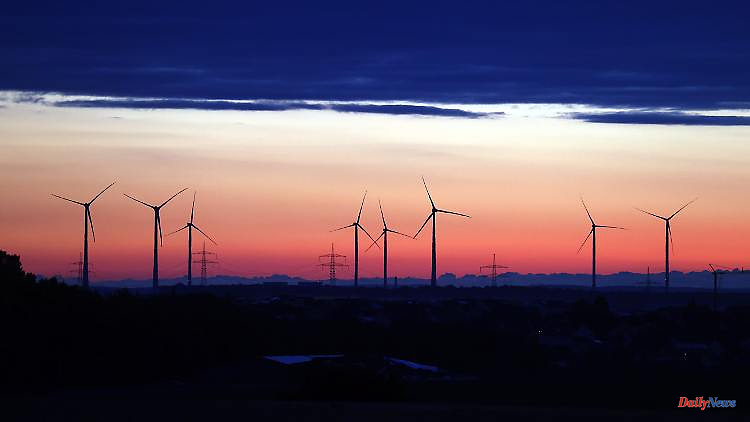According to a new study, the war in Ukraine could accelerate the green energy transition. And that despite the fact that Economics Minister Robert Habeck is looking for new gas contracts in Qatar and coal-fired power plants are now running longer than previously planned.
According to a study, the energy policy consequences of the Ukraine war could give wings to the green energy transition. This applies even if Germany, in the race for independence in the energy sector, again uses more coal for power generation in the short term, which is actually undesirable. According to the assessment of the credit insurer Allianz Trade (formerly Euler Hermes), the energy transition can be far more successful than previously expected.
"In the medium term, Germany's ambitious goals are likely to increase the share of renewable energies in the electricity mix even beyond what would be required to meet the Paris climate targets by 2035," said Milo Bogaerts, head of Allianz Trade for the German-speaking region. However, the prerequisite for this is a major restructuring of processes in central areas of the electricity system.
"The planning and approval procedures for renewable energy, electricity and hydrogen networks must be consistently simplified and accelerated," said Allianz energy expert Markus Zimmer. "In addition, the infrastructure expansion for electricity, gas and hydrogen networks urgently requires coordination, which cannot be achieved without an integrated system development plan."
According to Allianz Trade, the expansion of renewable energies brings with it considerable growth and employment advantages: The expansion of electricity generation capacity from renewable energies alone will require investments of an average of 28 billion euros per year up to 2035. These led directly and indirectly to additional added value of EUR 40 billion annually, which currently corresponds to more than one percent of German gross domestic product. "In addition, the expansion of renewable energies will employ an average of 440,000 workers in Germany from 2022 to 2035," according to the credit insurer's economists.
Allianz Trade explains that a short-term increase in the use of coal in electricity production with the corresponding accumulation of the climate-damaging gas CO2 does not endanger the climate goals with the functioning of the EU emissions trading system. In this context, the additional use of coal leads to an increase in the price of CO2 emissions. "This in turn means fewer CO2 emissions in other sectors," says Zimmer. "In addition, given the high EU emissions trading prices, it is very unlikely that coal will serve as a long-term substitute for Russian gas."












